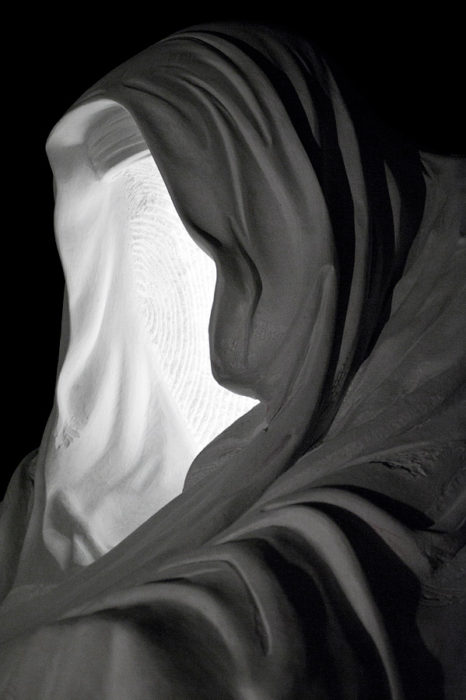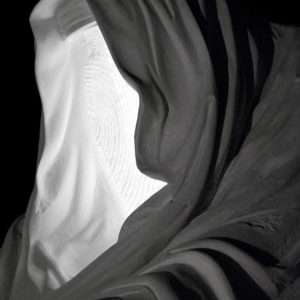
What’s the proper role of “conscience” in decision-making? What should I do if my conscience doesn’t line up with the Church’s teachings? Those are some of the questions that I explored with Cy Kellett on the latest episode of Catholic Answers Focus. Here is a taste of one of the questions he tried to stump me with:
Cy Kellett: Well, but let me just go one step further though because there’s the very common phenomenon in our world today that a person is poorly catechized and most of us have suffered this at some point, gotten poor catechesis. And so the person says to the priest, “Am I obligated to go to mass every Sunday?” And the priest, he’s Father Nice Guy and he goes, “Well, you should go to mass every Sunday, but no one’s going to die if you’re not here one Sunday.”
All right. So the person doesn’t have a conscience as to their Sunday obligation at all. And maybe if they were reading the catechism every night before they went to bed. But this is a normal person and I’m not saying the other person is abnormal, but this is a normal person with normal stresses in their life. They got a lot going on. They haven’t read the catechism. They asked Father, the Father gave them this answer and now they just have a poorly formed conscience. Are they sinning if they miss mass?
For my reply, and the rest of the conversation, you can listen (or just read the transcript?) here.

Hi Joe!
I have a question for you. As a staff Apologist of Catholic Answers in your experience what are the secrets to become an effective Catholic Apologist? What are the blessings and challenges of this vocation?
I ask this question for inspiration and encouragement.
God bless,
Christian
“Does Conscience Trump Doctrine?”
Trump? Trump? Trump?
REEEEEEEEEEEEEEEEEEEEEEEEEEEEE!
I’m literally shaking. Hold me mommy.
“Well, but let me just go one step further though because there’s the very common phenomenon in our world today that a person is poorly catechized and most of us have suffered this at some point,”
Because the V2 catechism is written in pseudo-intellectual doublespeak. And it now since Bergoglio contains heresy like condemning capital punishment.
Depends how you define “conscience”; it has been called the voice of God.
This was a question some of Sanhedrin may have asked themselves.
As far as I know, only Nicodemus got the correct answer.
The first question I would have is: Where does this idea come from that we should obey our conscience? I don’t see anything in the Old Testament about God punishing the Jews for failing o follow their conscience. They were punished for not following the will of God. Similarly, Jesus is not recorded telling people to follow their conscience. Instead, he tells people to keep the Commandments.
The second question is whether or not following conscience is superfluous. If we have a duty to inform our consciences, is ‘following our consciences’ just another way of saying that we must follow the teachings of the Church?
My third question would be: Are there any circumstances in which a Catholic is morally entitled to ‘follow his conscience’ if he is fully informed of Church teaching but his ‘consience’ tells him to ignore Church teaching. If not, then my point about following conscience being superfluous is re-inforced.
Fourthly, what about non-Catholics, especially non-Christians. They cannot see any reason why they should inform their consciences by reading up on Church teaching so do they have a moral obligation to follow their ‘uninfomed consciences’?
So let’s be specific. An atheist surgeon fully supports abortion. He carries out abortions. He sees no reason why he should not carry out abortions. His conscience tells him he is doing a good deed when he carries out an abortion. Is he morally obliged to follow his conscience and carry out the abortion?
This, to me, sums up the problem of saying that people have an obligation to follow their conscience. Far better, it seems to me, to tell people that they have an obligation to obey the will of God and that they will find the will of God by looking at what the Catholic Church teaches.
Hi Mike17,
Your comments are exactly on target and incisive. In the following I have tried to state the concept of conscience according to the Catholic Church as taught by the Catholic Church not by a priest or private person.
First, CCC 1790 is not infallible, in fact it is error. the CCC is only authoritative when it teaches the Magisterium which 1790 does not. 17900 has no footnotes, no citations, no references, no source, no support whatsoever. It is simply some persons personal opinion which unfortunately is very wrong.
The Catholic Church specifies three occasions when conscience can NEVER be followed
1. The first is that conscience only binds when we use it to come God…
“All are bound to follow their conscience faithfully in every sphere of activity so that they may come to God, who is their last end. Vatican II, Declaration on Religious Liberty (Dignitatis Humanae), no. 2
“Conscience is not an independent and exclusive capacity to decide what is good and what is evil. Rather there is profoundly imprinted upon it a principle of obedience vis-à-vis the objective norm which establishes and conditions the corresponden
“Personal conscience and reason should not be set in opposition to the moral law or the Magisterium of the Church” (CCC 2039).
2. The second is that we cannot follow a “seared” conscience…
“through the hypocrisy of liars whose consciences are seared with a hot iron” 1 Timothy 4:2
Unto the pure all things [are] pure: but unto them that are defiled and unbelieving [is] nothing pure; but even their mind and conscience is defiled. Titus 1:15
When conscience, this bright lamp of the soul (cf. Mt 6:22-23), calls “evil good and good evil” (Is 5:20), it is already on the path to the most alarming corruption and the darkest moral blindness. EV 24
3. the third is that conscience can never be followed to commit intrinsic evil (Thou Shall Not Murder)…
But the negative moral precepts, those prohibiting certain concrete actions or kinds of behaviour as intrinsically evil, do not allow for any legitimate exception. They do not leave room, in any morally acceptable way, for the “creativity” of any contrary determination whatsoever. VERITATIS SPLENDOR 67
Each of us can see the seriousness of what is involved, not only for individuals but also for the whole of society, with the reaffirmation of the universality and immutability of the moral commandments, particularly those which prohibit always and without exception intrinsically evil acts. VS 115
Before the moral norm which prohibits the direct taking of the life of an innocent human being there are no privileges or exceptions for anyone. Ev 57
The negative precepts of the natural law are universally valid. They oblige each and every individual, always and in every circumstance. It is a matter of prohibitions which forbid a given action semper et pro semper, without exception VERITATIS SPLENDOR #52
The sacredness of life gives rise to its inviolability, written from the beginning in man’s heart, in his conscience. EV 40